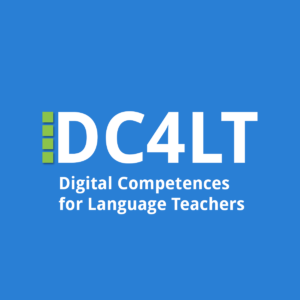The webinar is organized by DC4LT. The webinar is open to everyone interested in the topic of digital language teaching.
What to expect?
At the Digital Language Teaching Global Webinar by DC4LT, the participants can expect:
- Three keynotes by the leading researchers in the field
- A roundtable discussion with the speakers and experts
- Flash presentations of the Open Educational Resources by DC4LT
- Demonstrations and interactive workshops
Who should attend?
- Language teachers
- Digital language teaching researchers
The event is designed primarily for language teachers and instructional designers who are interested in improving and sharing their skills and practices in using digital tools and materials. The event is also highly relevant for researchers working in the area of computer-assisted language learning.
Free online participation
Participation in the event is free of charge. However, a simple registration is required. A link to join the webinar will be sent to all registered participants by email prior to the event.
- Event is free
- Registration required
- Zoom link will be sent by email
Program outline
6 December 2021
13:00 CET Welcome
13:15 CET Keynote 1: Why online language teachers need epistemology – and other tips for practitioners by Ursula Stickler
14:00 CET Keynote 2: How to effectively exploit ubiquitous technology in the teaching and learning of foreign languages by Jack Burston
14:30 CET Round table discussion with Ursula Stickler, Jack Burston, and George Mikros
15:45 CET Results of digital competence assessment surveys by DC4LT
16:05 CET Digital competence assessment framework by DC4LT
16:25 CET Digital competence trainer guide by DC4LT
16:45 CET Digital competence for language teachers toolkit by DC4LT
17:05 CET Q&A
7 December 2021
13:00 CET Welcome to day 2
13:15 CET Keynote 3: Automatic Text Readability Analysis Towards Explainable AI models in Applied Linguistics by George Mikros
14:00 CET Workshop 1: Introduction to computational text analysis using Voyant Tools by George Mikros
15:00 CET Workshop 2 (canceled): Teaching English multimodally by Marina Yesipenko
16:00 CET Workshop 3: Using Moodle Quiz to create language activities by Savvi Antoniou
17:00 CET Summary, Q&A, and closing
Monday 6 December 2021
13:00
Welcome by DC4LT team
The DC4LT team will introduce the topic of the event – Digital Language Teaching – that is teaching languages with digital technologies. The team will say a few words about the DC4LT community and the open educational resources we developed so far.

Mikhail Fominykh
Norwegian University of Science and Technology, Norway
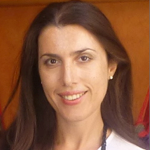
Maria Perifanou
University of Macedonia, Greece
13:15
Keynote 1: Why online language teachers need epistemology – and other tips for practitioners
This talk will present how we create meaning in a second language online, how we help our learners to comprehend the language during online tutorials, and how we draw their attention to salient features of their language learning tasks. Underpinning these practical aspects of online language teaching is our understanding of what constitutes knowledge and how we can ensure that our pedagogies build on this understanding. Furthermore, there will be a short intro to the ICT-REV inventory platform that contains a list of useful free tech tools for language teachers that have been evaluated with specific criteria in mind.
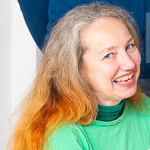
Ursula Stickler
Open University, United Kingdom
Dr Ursula Stickler is a Senior Lecturer (Associate Professor) in the School of Languages and Applied Linguistics at the Open University, UK. She teaches German and research methods. Her research interests are in online synchronous language learning and teaching, the use of qualitative and methods, including eye-tracking, to investigate how online learners and teachers establish joint attention online.
14:00
Keynote 2: How to effectively exploit ubiquitous technology in the teaching and learning of foreign languages
The topic of this talk is how to effectively exploit ubiquitous technology in the teaching and learning of foreign languages. The presentation begins with a consideration of the role that MALL (Mobile-Assisted Language Learning) has contributed to this process then proceeds to suggest ways that this contribution needs to expand to more fully exploit the language learning potential of mobile technologies.

Jack Burston
Cyprus University of Technology, Cyprus
Jack Burston holds the position of Honorary Research Fellow in the Language Centre of the Cyprus University of Technology. He is a language-teaching specialist with a formal background in theoretical and applied linguistics, second language acquisition and testing. His current research is focused on Mobile-Assisted Language Learning (MALL) and advanced-level foreign language instruction. Jack is a current member of the Editorial Board of the ReCALL Journal, Language Learning & Technology Journal and The Journal of Teaching English with Technology. He also served for many years on the Editorial Board of the CALICO Journal and was the Software Review Editor of the CALICO Journal for 13 years.
14:30
Roundtable discussion: Perspectives on digital language teaching
The roundtable discussion brings together experts in digital language teaching, leaders, instructors, and researchers. The discussants have diverse experience in linguistics and language teaching from higher education at universities across the world.
The experts will discuss the latest advances in digital language teaching and the outline perspectives for the future developments. The discussants will share their experience and opinions on the best practices and most common challenges in the design of digital technologies for language teaching, their adoption and effectiveness, teacher training, and pandemic-induced constraints. The discussion will continue with an open floor for questions from the participants.
Invited experts

Ursula Stickler
Open University, United Kingdom

Jack Burston
Cyprus University of Technology, Cyprus

George Mikros
Hamad Bin Khalifa University, Qatar – University of Massachusetts, USA
Moderators
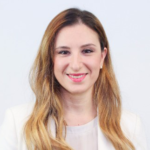
Elis Kakoulli Constantinou
Cyprus University of Technology, Cyprus

Maria Perifanou
University of Macedonia, Greece
15:45
Results of digital competence assessment surveys by DC4LT
In this flash talk, we will present results from the Digital Competence Assessment Survey and Job Market Analysis, both recently completed by the DC4LT team.
The survey assessed how language teachers use digital technologies, their attitude towards these technologies, their related skills and competencies, their satisfaction and required improvement, and the institutional support they receive. The survey was answered by 267 language teachers from 43 countries.
We will also present the results of a job market study for language teachers, which we conducted to explore the employers’ expectations in addition to the teachers’ perspective. We collected 854 job announcements for language teachers from 11 countries to check if the policies in digitalization and education have a direct impact on language teaching jobs.
We conclude the presentation by introducing our second survey to analyze how the situation has changed due to the pandemic challenges. We will use the results to produce guidelines and tools to help teachers efficiently use available technologies in their blended and online language teaching.
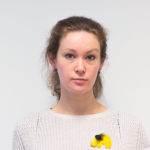
Daria Zhukova
ITMO University, Russia

Mikhail Fominykh
Norwegian University of Science and Technology, Norway
16:05
Digital competence assessment framework by DC4LT
In this flash talk, we will present a new digital competence assessment framework specifically designed for language teachers. The design of the framework is based on a survey of assessment frameworks and methods available to assess teachers’ digital competence. The Digital Competence Assessment framework for Language Teachers provides a general reference frame for developers of digital competence models for language teachers. The framework is accompanied by an assessment tool that can be used the language teachers who wish to assess their digital competences or find guidance to develop them.

Maria Perifanou
University of Macedonia, Greece
16:25
Digital competence trainer guide by DC4LT
This flash talk presents a trainer guide developed to assists teacher trainers in language education. The guide consists of (a) an overview of training methodologies for language learning in face-to-face, online, and blended formats, (b) a framework model for teacher training developed based on the experience from two series of webinars conducted by DC4LT in 2021, and (c) a collection of 16 teacher training modules, fully described and available as OERs.
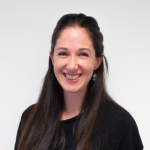
María Victoria Soulé
Cyprus University of Technology, Cyprus
16:45
Digital competence for language teachers toolkit by DC4LT
This flash talk presents a toolkit designed for language teachers to guide and advise on the practical use of digital technologies. The toolkit provides an overview of over 20 technologies commonly used in language teaching. Each technology section is supplied with examples of digital tools, open educational resources, open educational practices, and common practices in training the basic language skills speaking, writing, listening, and reading.
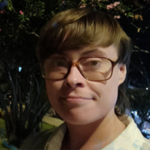
Elizaveta Shikhova
ITMO University, Russia

Mikhail Fominykh
Norwegian University of Science and Technology, Norway
17:05
Questions and Answers
The floor will be open for any questions form the participants!
Tuesday 7 December 2021
13:00
Welcome to day 2 by DC4LT team
The DC4LT team will introduce the program of the second day with the third keynote and three interactive workshops. We will also give a brief overview of the two series of webinars organized by DC4LT team in 2021.

Mikhail Fominykh
Norwegian University of Science and Technology, Norway

Maria Perifanou
University of Macedonia, Greece
13:15
Keynote 3: Automatic Text Readability Analysis: Towards Explainable AI models in Applied Linguistics
This talk will present the use of modern machine learning techniques and the utilization of stylistic features in order to automatically determine the reading difficulty of a text and its suitability for a specific level of language learning. More specifically, it will showcase such a system for classifying Greek texts at language proficiency levels to facilitate the teaching of Modern Greek as a foreign language.

George Mikros
Hamad Bin Khalifa University, Qatar / University of Massachusetts, USA
George Mikros before assuming his Professor position at the MA Program of Digital Humanities at HBKU, he was Professor of Computational and Quantitative Linguistics at the University of Athens Greece. He is the director of the Computational Stylistics lab. He is also Adj. Professor at the Department of Applied Linguistics at the University of Massachusetts, Boston, USA. He had the position of Research Associate at the Institute for Language and Speech Processing and he was part of research groups that have developed significant language resources and NLP tools for Modern Greek. Since 1999 holds the position of Teaching Associate at the Hellenic Open University and since 2016 he is the Director of the Undergraduate Program “Spanish Language and Culture”. Prof. Mikros has authored 5 monographs and more than 80 papers published in peer-reviewed journals, conference proceedings, and edited volumes. Since 2007 he has been elected as Member of the Council of the International Association of Quantitative Linguistics (IQLA). In 2018 he was elected its President. He is a keynote speaker and invited speaker in many international conferences, workshops and summer schools related to Digital Humanities and Quantitative Linguistics. His main research interests are computational stylistics, quantitative linguistics, computational linguistics, and forensic linguistics.
14:00
Workshop 1: Introduction to computational text analysis using Voyant Tools
This talk will present the use of modern machine learning techniques and the utilization of stylistic features in order to automatically determine the reading difficulty of a text and its suitability for a specific level of language learning. More specifically, it will showcase such a system for classifying Greek texts at language proficiency levels to facilitate the teaching of Modern Greek as a foreign language.

George Mikros
Hamad Bin Khalifa University, Qatar / University of Massachusetts, USA
15:00
Workshop 2 (canceled): Teaching English multimodally
The workshop deals with the concept of Multimodality and the ways it could be successfully implemented in English Language Teaching and Learning. The basic premise is driving away from the conventional monomodal texts to genres that include more multimodality, like infographics, comics, etc. These may ensure better language acquisition, learning and retainment of the materials learnt. The participants will not only gain insights into the concept of multimodality in teaching but also gain some practical insights into how different skills and sub-skills could be developed more effectively.

Marina Yesipenko
Charles University Prague, Czech Republic
16:00
Workshop 3: Using Moodle Quiz to create language activities
Moodle LMS, as the official platform used in many universities worldwide, provides endless possibilities to the instructor to create and structure the content of the course. With Moodle Quiz the instructor can create activities either for consolidation or for assessment. However, one could be overwhelmed by the number of templates available and by the various ways each one can be used. Moodle 3.9 offers 16 Question types and in this workshop, we discuss some of these types demonstrating how to create activities for a language class using Moodle Quiz. The aim is to develop the instructors’ skills for using this technology and encouraging in this way the successful technological implementation in a language class. Moodle is an easy-to-use tool whose integration in a language class can only be beneficial for both the learner and the instructor. We explain how to design online activities and Quizzes using the Moodle LMS by presenting a general description and then a step-by-step guide to create the activity. Sample activities are also being presented. This workshop addresses all language educators who are interested in teaching languages through Moodle LMS and provide them with a guide to follow in order to assist them create their own language activities (see also Antoniou & Papadima-Sophocleous, 2022).
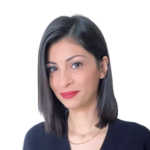
Savvi Antoniou
Cyprus University of Technology, Cyprus
17:00
Questions and Answers
The floor will be open for any questions form the participants!



